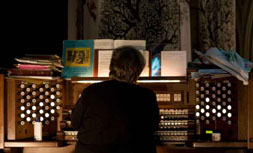The Fifth Sunday after Pentecost, Proper 8B, June 28, 2015; The Rev. Pamela L. Werntz
2 Corinthians 8:7-15. In order that there may be a fair balance…’the one who had much did not have too much and the one who had little did not have too little.
Mark 5:21-43. Do not fear, only believe.
O God of Healing and Restoration, grant us the strength, the wisdom and the courage to seek always and everywhere after truth, come when it may, and cost what it will.
What a week. What a week of so many tears. Tears of sorrow, of anger and despair, tears of amazement, tears of joy and relief, and tears of hope and brave determination. The people of Charleston, South Carolina are still burying the nine faith-filled people massacred in Emanuel African Methodist Episcopal Church a week ago last Wednesday while they were praying together and studying the Bible. The families of the martyrs have declared forgiveness for the shooter. They are continuing to testify and demonstrate that love is stronger than hate, and more powerful than death. Wednesday Bible Study went on as scheduled this past week with about 100 people jammed into the room where so much blood had been spilled the week before. Pastor Pinckney’s lesson the week before had been about the parable of the sower. Pastor Goff’s lesson the week after was about the power of love – full of parables from both Hebrew and Christian Testaments that reportedly had the people in that gathering laughing and crying at the same time. What powerful seeds of love are being sown by Mother Emanuel. And that’s not all. Continue reading


